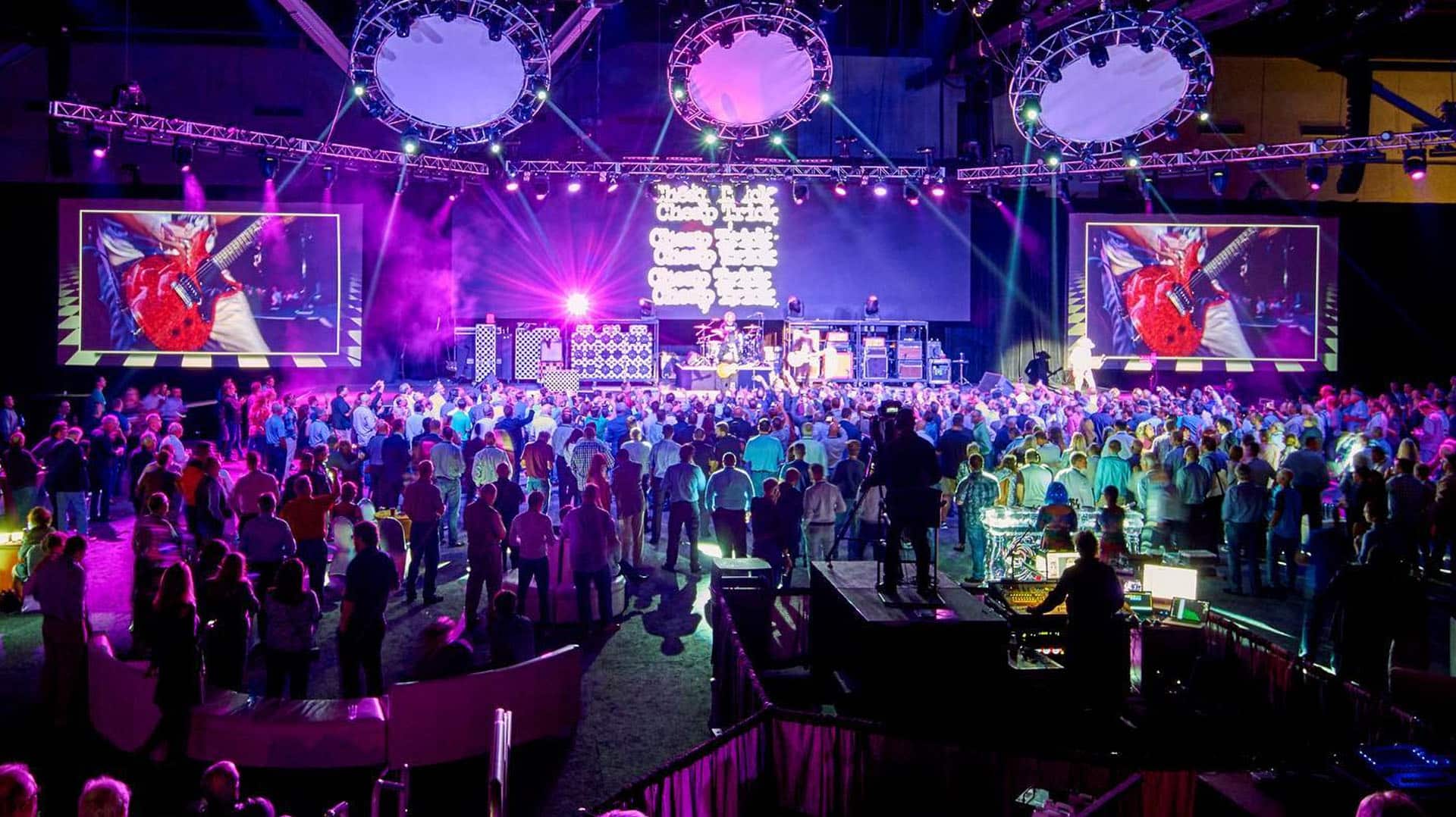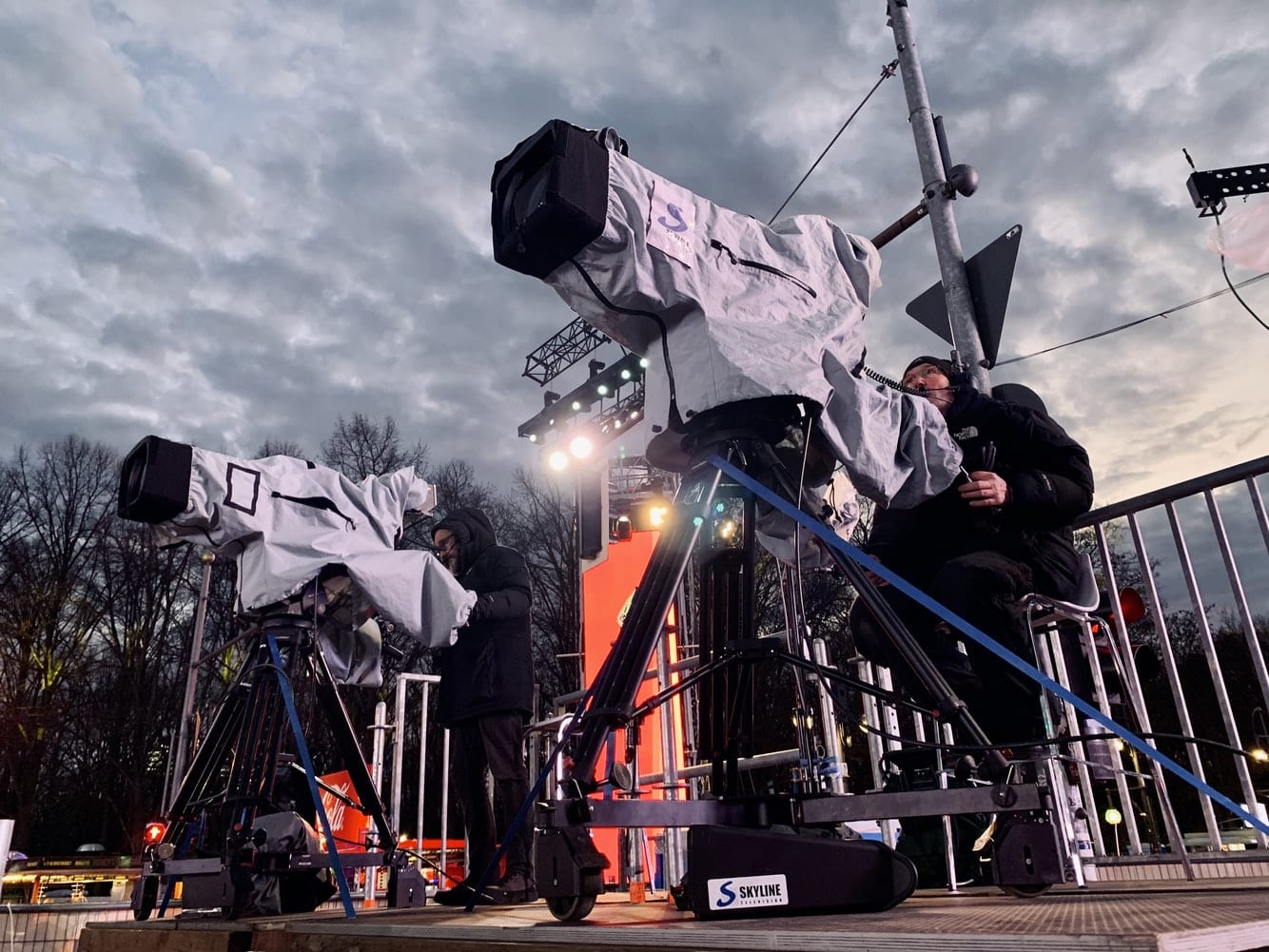Tips for Teaming Up with an Expert Event Production Company
Tips for Teaming Up with an Expert Event Production Company
Blog Article
The Significance of Effective Preparation in the Process of Event Manufacturing
Reliable planning serves as the foundation of successful occasion production, developing a structured framework that fosters accomplishment. The details of each planning phase disclose complexities that typically challenge even the most seasoned professionals, elevating the inquiry: what are the critical aspects that can make or break the preparation process?
Comprehending Occasion Preparation Essentials

Initially, it is necessary to carry out comprehensive research to identify the target market, location choices, and potential difficulties. This foundational knowledge informs all succeeding preparation decisions. Complying with research, thorough logistics management is called for to address variables such as budgeting, organizing, and source allowance. A well-structured timeline is crucial, making certain that every task is completed in a timely fashion.
Sychronisation amongst stakeholders-- consisting of suppliers, sponsors, and group members-- is another critical facet of event preparation. By realizing these occasion preparation fundamentals, organizers can browse the intricacies of the process, inevitably leading to a successful and unforgettable event experience.
Establishing Clear Purposes

To develop efficient goals, coordinators must use the SMART requirements-- Details, Quantifiable, Achievable, Relevant, and Time-bound. Particular objectives eliminate uncertainty, while measurable criteria permit tracking progression and reviewing success. Attainable objectives guarantee that the goals are achievable and sensible within the offered constraints, while relevant objectives align with the wider mission of the company. Lastly, time-bound goals produce a sense of necessity and aid prioritize tasks.
In addition, plainly verbalized purposes facilitate interaction and liability throughout the planning stages, eventually leading to an extra successful occasion. By focusing on the establishment of clear objectives, event planners lay a solid structure for effective execution and examination of their initiatives.
Budgeting and Source Appropriation
Effective budgeting and source allotment are crucial components of effective event planning, as they straight influence the expediency and high quality of the occasion. A well-structured spending plan acts as a roadmap, leading decision-making and making sure that sources are used successfully. It is vital to determine all possible expenses ahead of time, consisting of location rental, event catering, entertainment, staffing, and marketing, to create a detailed monetary strategy.

Unforeseen expenditures may occur, requiring adjustments to make certain that the occasion go to this website remains economically practical. Ultimately, efficient budgeting and source allotment lay the structure for a successful occasion, making it possible for planners to satisfy their objectives while making best use of return on investment.
Timeline Development and Management
Producing a thorough timeline is necessary for maintaining event manufacturing on track and ensuring that all tasks are finished in a timely fashion. A well-structured timeline works as a roadmap, guiding the occasion team via each phase of the manufacturing process. It marks important landmarks, due dates, and dependences, permitting for the efficient allowance of workers and sources.
To establish a reliable timeline, start by recognizing all key components of the occasion, including planning, logistical arrangements, vendor sychronisation, and advertising and marketing efforts. Damage down each component into workable jobs, appointing specific target dates and responsible events. This granular strategy facilitates accountability and aids to recognize prospective bottlenecks early while doing so.
On a regular basis updating the timeline and reviewing is vital. As the occasion date techniques, unforeseen challenges might occur, requiring changes to the strategy. By keeping versatility and promoting open communication among group participants, you can make certain that every person is lined up and familiar with any kind of changes.
Eventually, effective timeline monitoring not just enhances performance yet likewise adds to a smooth occasion experience, enabling all stakeholders to concentrate on delivering a successful outcome. Event Production Company.
Risk Evaluation and Backup Preparation
As the timeline for event manufacturing unfolds, dealing with prospective threats becomes significantly vital. Threat analysis entails identifying, evaluating, and prioritizing best site possible dangers that might interrupt the occasion. This aggressive approach allows occasion planners to anticipate obstacles-- ranging description from damaging weather condition conditions to technological failings-- and devise approaches to alleviate their effect.
Contingency planning is the foundation of reliable danger management (Event Production Company). It involves creating alternative methods and action plans to be applied need to determined dangers appear. Having backup places, different distributors, or emergency situation communication protocols in area can dramatically minimize the turmoil frequently connected with unpredicted problems.
Furthermore, it is important to entail all stakeholders throughout the danger analysis stage. Involving employee, suppliers, and location managers promotes an extensive understanding of prospective susceptabilities, making sure that backup strategies are well-communicated and robust. Regularly examining and updating these strategies throughout the event planning process is vital to adjust to any modifications in circumstances.
Conclusion
In recap, reliable preparation offers as the structure for effective event production. Inevitably, a systematic technique to event planning not only boosts the possibility of a seamless execution but additionally contributes to an unforgettable experience for all individuals entailed.
By realizing these event planning fundamentals, organizers can browse the complexities of the procedure, ultimately leading to a effective and memorable occasion experience.
Successful occasion planning pivots on the ability to establish clear purposes that guide the whole procedure. In addition, plainly expressed goals facilitate communication and liability throughout the preparation stages, eventually leading to an extra successful event.Effective budgeting and source allowance are critical parts of successful occasion planning, as they directly affect the feasibility and top quality of the event.To establish an effective timeline, start by recognizing all essential parts of the occasion, consisting of preparation, logistical arrangements, vendor sychronisation, and marketing initiatives.
Report this page